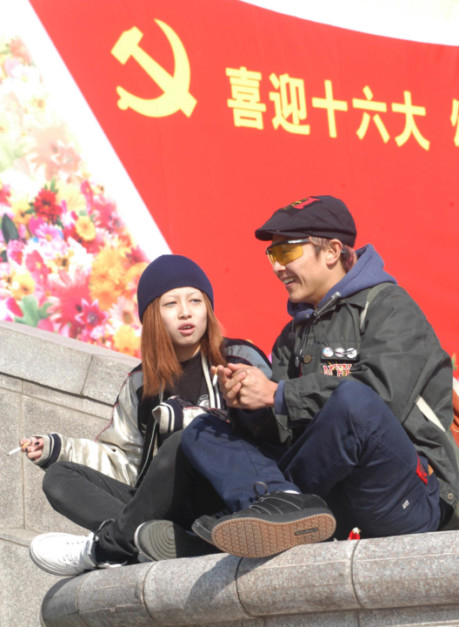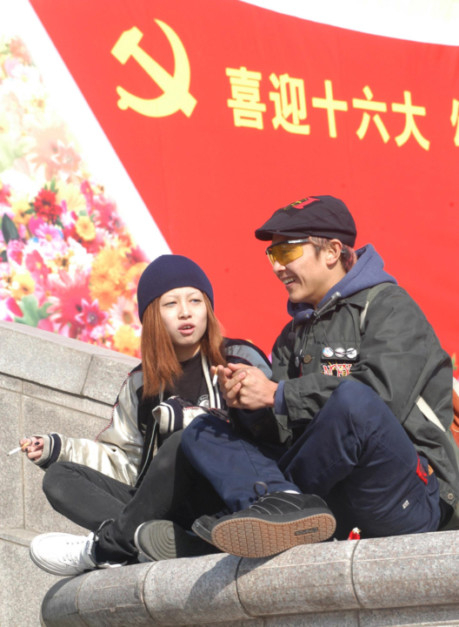
Thousands of health campaigners fanned out across Beijing to publicise a new ban on public smoking in the heart of the world’s biggest cigarette market — but smokers said they had no plans to quit the habit. Anti-smoking posters at strategic sites across the capital were backed by a propaganda blitz in state media to ensure each of Beijing’s two million smokers knew they could no longer light up in shops, cinemas or many other public places. “If someone is smoking, we will first tell them the harm smoking can do, then that it is prohibited here. If they still don’t stop, we’ll fine them,” said Sun Guihua, a smoking inspector at the Beijing Number One Department Store. Officials of China’s state tobacco monopoly have said the ban will have little effect.
Other important events:
1718 The world’s first machine gun is patented by English inventor James Puckle.
1767 Genoa sells island of Corsica to France.
1918 The first experimental airmail route in the US starts between Washington, Philadelphia and New York.
1923 Britain formally recognises Transjordan as independent state under Emir Abdullah.
1924 US Congress passes bill instituting immigrant quotas based on nationality.
1928 The Royal Flying Doctor Service is inaugurated in Cloncurry, Queensland.
1930 Ellen Church, the first airline stewardess, goes on duty aboard a United Airlines flight between San Francisco and Cheyenne, Wyoming.
1935 The first section of the Moscow Metro opens to the public.
1940 The first McDonald’s restaurant opens in San Bernardino, California.
1941 American baseball player Joe DiMaggio begins 56 games hitting streak.
1955 Austrian state treaty is signed, ending 10 years of Allied occupation.
1957 Britain explodes its first thermonuclear bomb in central Pacific.
1963 Astronaut Gordon Cooper is launched into space aboard Faith 7 on the longest American space mission to date.
1988 Soviet troops begin withdrawal from Afghanistan.
1989 Kremlin leader Mikhail Gorbachev makes historic visit to China.
1990 Philippines notify the US that it will terminate its military bases agreement.
1991 Edith Cresson becomes France’s first woman prime minister.
1992 Opposition supporters seize Azerbaijan’s parliament and presidential palace.
1995 At least 60 people are killed in Tamil Nadu, India, when an express train ram into a goods train that apparently ignored a stop signal.
1998 India declares itself a nuclear nation after five bomb tests in a week.
2000 Israeli and Palestinian security forces fight fierce gun battles as protests sweep the West Bank and Gaza Strip, leaving four Palestinians dead.
2003 At least 38 people are burnt alive when a blaze whips through packed carriages of an express train near the northern Indian city of Ludhiana.
2007 Irish Prime Minister Bertie Ahern becomes the first leader from Ireland to address joint houses of British Parliament.
2008 UAE and UK sign a peaceful nuclear energy cooperation agreement in Abu Dhabi.
2009 Pope Benedict XVI visits Christianity’s holiest place in Occupied Jerusalem.
2012 Francois Hollande is sworn in as France’s first Socialist President in 17 years.
2014 A heavily-laden ferry capsizes and sink on the Meghna river, Bangladesh, killing at least 29 people.



